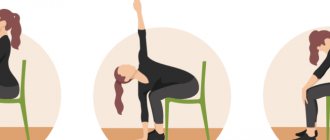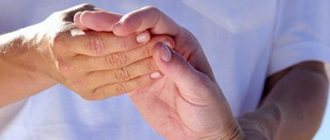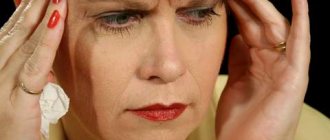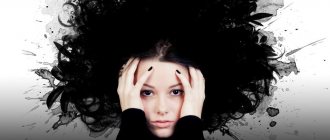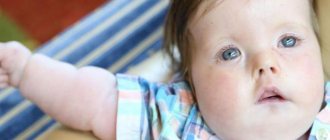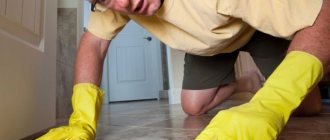One of the forms of obsessive behavior, which is characterized by the desire to accumulate things, is called “Plyushkin syndrome” at the everyday level, and in psychiatry – pathological hoarding.
Other synonyms are also used: syllogomania or hoarding. The irrational desire to preserve any things, including those not suitable for later use, has been known for a long time; it is considered a sin in Christianity, and in the Church Slavonic language it is called molestation. In modern speech (mainly among the Russian-speaking population), this disorder is associated with a literary hero - Stepan Plyushkin, one of the characters in the work “Dead Souls” by Nikolai Vasilyevich Gogol.
Signs of Plyushkin syndrome
People who develop Plyushkin syndrome (pathological hoarding) keep old things even when they are of no value. These items may be dilapidated, beyond repair, and cannot be used in any way in the future. However, a person who exhibits signs of Plyushkin syndrome is not able to get rid of them.
For such people, the need to throw away some low-value, broken or unnecessary thing, or even the thought of the possibility of such an action, causes a feeling of pronounced anxiety and brings significant discomfort. Therefore, people with Plyushkin syndrome keep everything; over time, the accumulated property becomes nowhere to be stored, but this circumstance does not affect the behavior of patients with pathological hoarding. Unnecessary, old, broken or dilapidated objects clutter up the entire space, and the apartment or house becomes uninhabitable.
The housing of people with Plyushkin syndrome is completely filled with unnecessary things, even garbage: there is no place for cooking on the kitchen surfaces, the doors to the bathrooms cannot be closed due to the accumulated rubbish, bags or sacks are hung on the walls, the floor is completely cluttered, and there are only narrow passages , children do not have space to play and develop.
People suffering from Plyushkin syndrome often hide their obsessive actions from relatives and friends and do not invite them home. They are embarrassed by cluttered housing, and they have difficulty inviting workers to repair the premises, a doctor or guests.
Very often, stacked useless things pose a serious threat - they can become breeding grounds for parasites, the fire safety of housing is reduced, and escape routes in case of fire are difficult.
Individuals who have signs of Plyushkin syndrome find a rational explanation for their actions even if pathological hoarding reaches a significant degree of severity.
Pathological hoarding is different from thrift and collecting. With Plyushkin syndrome, things are usually stored in disarray and litter the space; they are of no value and are not used for construction or repair. In addition, this disorder is not analogous to shopaholism, in which a state of satisfaction is achieved by acquiring a new thing, even if it is not needed. With pathological hoarding, a person cannot throw away anything, and a shopaholic easily parts with objects.
It is necessary to distinguish between pathological hoarding and the one-time appearance of a large number of things and rubbish (for example, after a person receives an inheritance), since the signs of Plyushkin syndrome persist for a long time.
Pathological hoarding can take on various forms, but a combination of them is also possible.
Pathological accumulation of one's belongings
A person with pathological hoarding cannot part with his things even after they cease to be of any value. It stores not only worn-out clothes or broken equipment, but also newspapers, rags, bottles of household chemicals, plastic bags, etc.
Collecting discarded items
In this form of the disorder, a person picks up unnecessary items from trash heaps, brings them into his home and stores them indefinitely, without sorting or using them. Collecting discarded things usually meets with rejection from loved ones, but a person cannot resist it.
Pathological hoarding of animals
One of the varieties of Plyushkin syndrome also includes pathological hoarding of animals, when people have an excessively large number of pets without being able to provide them with the necessary nutrition and veterinary care. This form of the disorder is the most dangerous for both the collectors themselves and their neighbors, as it leads to non-compliance with sanitary standards and a high likelihood of developing zoonotic infectious diseases.
When to sound the alarm
There are clear signs of shopaholism that cannot be missed. A shopaholic is interested in fashion trends. Follows fashion trends and buys relevant magazines. He often has a desire to acquire something, especially in stressful situations. This obsessive thought does not go away until the patient goes shopping.
The desire to make a purchase becomes so strong as the process progresses that it almost constantly accompanies oniomaniac. At the same time, the person does not clearly know what he wants to buy. If for some reason the patient is deprived of the opportunity to go shopping, his mood drops sharply and his sleep is disturbed. He falls into a depressed state, becomes aggressive or apathetic.
Directly during shopping, the following signs attract attention:
- inspection of all goods, without individual preferences;
- Immediately before and during a trip to the shops, a shopaholic experiences a feeling of euphoria. The patient thinks only about buying more and more of everything. He is completely absorbed in the process. It is very difficult to distract an oniomaniac from shopping. Scientists conducted a study in which they studied the brain of a patient while shopping. It turned out that the part of the brain that is responsible for logical thinking is completely switched off in oniomaniacs during a shopping trip, and the area responsible for emotions, on the contrary, is activated;
- the patient loses the sense of time. Can spend dozens of hours in stores;
- the goods purchased are usually useless. They are not of strategic importance;
- while shopping, the onioman is in high spirits;
- control over finances is lost. The patient is capable of “squandering” quite large sums in one day;
- After making purchases, he enthusiastically discusses the purchased goods. He gets angry when he receives reproaches from loved ones for stupid purchases and excessive spending.
After an attack of shopaholism, a person may be tormented by remorse for having wasted, for example, the entire family budget.
He scolds himself for once again succumbing to his whim. Against this background, a depressed mood is formed. The appearance of vegetative symptoms in the form of hypertension and heart pain is possible. But such remorse is unstable. Soon the shopping addict goes on another hunt again. Men and women oniomaniacs have certain differences. Ladies in most cases spend money uncontrollably on wardrobe items, cosmetics, and jewelry. Representatives of the stronger half of humanity buy goods that symbolize power and prestige: cars, yachts, watches, mobile phones. Their purchases are more conscious. Often the purchased product expresses those qualities that a man who is a shopping addict lacks: confidence, reliability, nobility.
At the early stage of the disorder, the patient is able to carefully hide his inclinations. Therefore, relatives do not always recognize the problem in time. It is also difficult to diagnose shopping addiction among wealthy people. Such a person can afford quite a lot. Therefore, when he falls into endless spending, it is perceived as in the order of things.
Oniomania is a disorder that, at first glance, seems harmless . In fact, it leads to disastrous consequences. Often, shopping addicts accumulate large amounts of debt because they are forced to borrow money for their promenade after thoughtlessly squandering their savings.
Financial difficulties lead to conflicts with loved ones. Often, families of shopaholics fall apart due to obsession and constant spending.
The disease has particularly severe consequences. So, a 27-year-old girl committed suicide. The reason was debts accumulated as a result of shopaholism. The suicide reported this in her suicide note.
Diagnostic criteria for Plyushkin syndrome
Pathological hoarding disorder is a chronic disorder. At the moment, Plyushkin syndrome is not included as a separate nosological unit (disease) in modern classifiers, although the medical community is considering the need to indicate this disorder in the next, eleventh, edition of the ICD.
To determine the disorder, the following diagnostic criteria for Plyushkin syndrome are used:
- The need to throw away or give away things that are not even of real value to someone causes significant difficulties.
- A feeling of a strong need to preserve things and discomfort at the suggestion that they need to be gotten rid of.
- Accumulating property clutters living and utility rooms, so these spaces cannot be used for their intended purpose.
- A pathological tendency to keep unnecessary things creates discomfort and leads to problems in social, everyday, professional and other areas of activity.
The thrifty owner turns into a collector
It is important to note that the decline of the estate of an inimitable literary hero is preceded first by pathological changes in character, and then by a pathological decline in the status of the hero’s personality. Plyushkin was by no means born a “Plyushkin”: “...there was a time when he was just a thrifty owner! he was married and a family man, and a neighbor came to him for lunch, to listen and learn from him about housekeeping and wise stinginess.”
Like most other landowners in Dead Souls, Plyushkin’s estate was quite large, and he, “like a hardworking spider, ran busily, but efficiently, to all ends of his economic web.”
From a zealous and exemplary owner in his youth (“mills, fulling mills were moving, cloth factories, carpentry machines, spinning mills were working”), Plyushkin, as he grew old, turned into a “spider” who lost his children and brought his once rich farm to complete ruin.
“Hay and bread rotted, luggage and stacks turned into pure manure, even if you planted cabbage on them, flour in the cellars turned into stone, and it was necessary to chop it, cloth, linen and household materials were scary to touch: they turned to dust. He had already forgotten how much he had...
Everything about Plyushkin “became rotten and a hole, and he himself finally turned into some kind of hole in humanity.”
Gradually, the thrifty owner's intellect deteriorated, his thinking turned out to be permeated with suspicion, reaching the point of paranoid syndrome: Plyushkin considered all his relatives, neighbors and servants to be thieves and swindlers; pettiness and stinginess acquired a pathological character.
Reasons for the development of Plyushkin Syndrome
The scientific community currently identifies a number of factors that may contribute to the occurrence of Plyushkin syndrome (pathological hoarding).
There is an opinion that often the tendency to develop Plyushkin syndrome manifests itself after serious life shocks, such as the destruction of a family, a serious illness or the loss of someone close. Tragic events play the role of a primary incentive to save things of a loved one for sentimental purposes, but over time, compulsive hoarding spreads to other items and takes on a sustainable character.
There are studies that prove the neuroanatomical basis for the formation of this disorder. Such publications mention the structural features of the brain in people suffering from Plyushkin syndrome, namely: poor development of the frontal lobe cortex, especially the right hemisphere - that is, those structures that control the rationality of actions.
It is worth noting that caring for material well-being is a psychological priority to a greater extent for older people. Therefore, they become more susceptible to pathological hoarding. The presence of mental illness, especially mental retardation or decreased intelligence of vascular or atrophic origin, can be a significant predisposing factor. Other deficiency conditions in endogenous (schizophrenia) or organic diseases may also be important in the development of Plyushkin syndrome.
Also, factors that can contribute to the formation of the disorder include a history of a traumatic situation, the loss of a loved one significant to the patient, loneliness and the influence of past illnesses or surgical intervention.
Studies explaining the reasons for the development of Plyushkin syndrome are few, and there is no clear answer to the question about the factors in the formation of the disorder.
"Covid fog"
“I suffered from coronavirus in a mild form, the temperature did not rise above 37.8 degrees,” says 35-year-old Natalya.
— At the beginning of the disease, the sensations were similar to the symptoms of a regular ARVI. But then something began to happen to your head: you seem to live in a fog. You don’t want to think about anything, do anything. It took me more than two months to get out of this state.” 44-year-old economist Alexey, who also recovered from coronavirus relatively easily, also complains of apathy: “I plunged into cat life for two weeks. You wake up, eat a little, then fall into a stupor and fall asleep without noticing. And so around the clock. You can’t remember anything in your head, you don’t remember any important things. Then it gradually began to pass, but I didn’t have the strength to engage in any intellectual activity for a long time.”
But 49-year-old Svetlana, who was hospitalized due to bilateral pneumonia, had to face other consequences. For three months after discharge, she suffered from insomnia and anxiety, and in the short intervals when she managed to fall asleep, she suffered from nightmares. As a result, the woman had to turn to a psychiatrist for help.
Photo © Pixabay
Experts drew attention to such consequences after the first wave of the pandemic. Today, according to researchers, more than a third of those who have recovered from coronavirus experience negative mental consequences to one degree or another. The range of disorders is very wide: from apathy to prolonged depression, panic attacks and memory problems. Doctors also discovered dependence: the more severe the illness, the more serious the psychological consequences.
“In general, it is very difficult to talk about any clear impact of coronavirus on the human psyche,” says Nikolai Starostin, a psychiatrist at a private St. Petersburg clinic. - For two reasons. Firstly, we still do not know exactly how the mechanism of the virus’s influence on the human mental apparatus works. There are already quite a lot of different studies, but they are still at the stage of discussion in the scientific community. We understand that this is clearly influenced by vascular damage: after all, they are the main target of the virus. But this knowledge is not yet enough to draw clear conclusions.”
Psychiatrists point out that the mental health problem associated with COVID-19 is much broader than just the effect of the virus on the human body. We can say that its effect on the human psyche begins much earlier than it enters the body.
Treatment of Plyushkin syndrome
In most cases, people suffering from pathological hoarding do not consider their actions as abnormal. As a rule, loved ones and neighbors experience great inconvenience from collecting and storing unnecessary things. Lack of criticism of one’s condition and its consequences is a serious obstacle in the treatment of Plyushkin syndrome.
Patients themselves rarely seek medical help. Usually the initiative comes from those relatives who live with the patient.
Drug treatment
There are essentially no official protocols for the treatment of Plyushkin syndrome. Some studies indicate some success with therapies such as antidepressants. But drug treatment of pathological hoarding does not show satisfactory effectiveness.
How does the virus work?
But the causes of post-Covid mental disorders are not only fears for one’s life. Here the actual factors of the disease begin to play a role. Lack of oxygen in the body also leads to poor supply to the brain. This effect can lead to a variety of consequences for the nervous system.
According to a study by Italian doctors published in the journal Brain, Behavior and Immunity, 55% of patients who recovered from Covid experienced some kind of mental problems. Scientists who surveyed 402 people associate them with hormonal imbalances, which are provoked by the immune system resisting the virus. Another reason for negative mental consequences is the severe stress that the patient’s body experiences.
A subsequent study of the psyche of patients who had COVID-19 corrected the data of Italian specialists. Thus, a group of researchers from the USA and Great Britain received less pessimistic results. After a large-scale study of the medical histories of more than 230 thousand people, scientists said that only 34% of Covid survivors complained of anxiety and personality disorder within six months.
